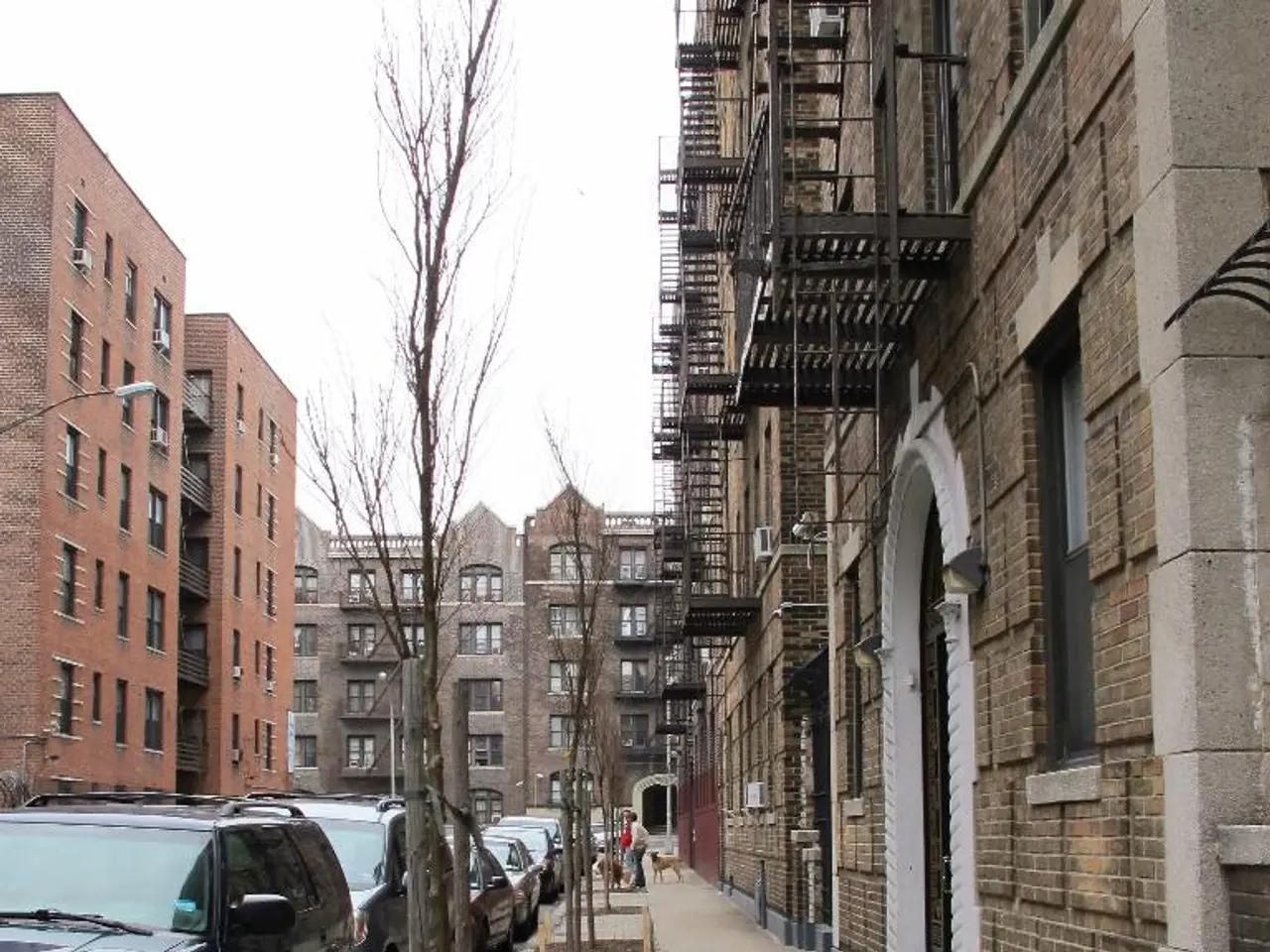Berlin's housing market is undergoing a significant downturn
Berlin's dwindling social housing is causing a stir 😫
It's no secret that Berlin's state-owned housing companies (LWU) are in a pickle, with their housing targets consistently falling flat. Last year, they only managed to complete 3461 apartments – a pathetic 53% of the 6500 units they had promised. The Left Party's housing spokesman, Niklas Schenker, couldn't hide his frustration when he called out the LWU's comically low number of social housing units, which stood at a mere 906, only slightly higher than the dismal 2018 count 😞.
But what's most alarming is the projected trend: with about 97,000 social housing units currently in Berlin, the number is expected to plummet even further 📉. According to Senate figures, another 34,420 apartments will lose their social housing status by 2030. Talk about a long and lonely wait for affordable housing in this city 😑! On the bright side, only around 25,900 new social housing units will be built – a gap that's leaving many Berliners high and dry 💦.
When Schenker expressed his concern about the dwindling social housing options, he didn't mince words: "Berliners need affordable housing, but the city's not getting enough from private developers – and communal housing construction is in free fall." 😡
He even went as far as demanding the Senate consider personal consequences for the housing companies' repeated failure to meet targets, while warning them that violating the state's guidelines can't be without repercussions 🚔.
While the dismal state of social housing in Berlin might seem like a complex problem, there are some important factors at play that offer some clue as to what's going wrong 🧐. Here's a lowdown on the possible culprits and potential solutions:
Impacts of Scant Social Housing Units:- Limited availability of affordable housing for low-income families, single parents, students, and elderly residents on fixed incomes 💸.- Housing insecurity for those on waiting lists and those competing for scarce affordable units ⏳.- Upward pressure on rents and property prices, making it tough for the lower-income set to secure housing 🏠.- Aging infrastructure issues that require renovation and energy-efficient upgrades for improved living conditions and sustainability 🏡.
Causes of the Shortage:- Historic reductions in social housing programs since the 1980s, as policy shifted from treating housing as a right to seeing it more as a market commodity 💸.- Construction and financial constraints, like sharp rises in interest rates, higher construction costs, and scarcity of skilled labor 🔧.- Berlin's inability to meet its ambitious construction targets, due to limited land availability, bureaucratic hurdles, and administrative delays 📝.- Competition for land and delays in planning and approval processes slowing down new social housing projects 👷♂️☎️.
Potential Solutions:- Berlin's goal to build 200,000 new social housing units by 2030, backed by around €1.5 billion in annual funding and programs like the IBB Social Housing Refurbishment Programme 🔨💰.- Public-private partnerships, in which government subsidies and private sector efficiency work together to increase housing stock and affordability 🤝.- The "construction turbo" initiative that aims to accelerate housing development nationwide, through investment fund, streamlined approval processes, and modernized construction techniques 🌄🏗️.- Fast-Track Construction Act, proposed to speed up planning and approval processes and reduce delays in social housing projects ⏩🗂️.- Prioritizing land allocation to municipal housing companies and cooperatives before private developers, while offering financing facilities for vulnerable populations 🗄️💼.- Addressing labor shortages and cost inflation at the national level to enable the construction industry to meet demands and build the housing units that Berlin desperately needs 👷♂️💼.
All things considered, Berlin's housing problem is a thorny mess – but informed action stands a chance at making things right for the city's most vulnerable residents 🤔💼🚀.
- Despite the declining social housing units in Berlin, there's a need for extensive wealth management and smart personal-finance strategies for citizens.
- Investing in real-estate, particularly social housing, could be a profitable move considering the future demand and scarcity of such properties.
- The continuing policy-and-legislation measures are crucial for the improvement of the housing-market, especially with regards to social housing.
- In view of the imminent shortage of social housing units, appropriate debt-management and budgeting practices are necessary for Berliners to navigate the rising rents and property prices.
- The tumbling number of social housing units in Berlin raises concerns in the general-news, necessitating in-depth analysis and discussions on crime-and-justice, as affordable housing is linked to reduced rates of crime and increased social stability.
- The lagging progress in social housing construction highlights the intricate intersection of politics and housing policies, underscoring the necessity for increased accountability and transparency.
- Addressing the issues plaguing Berlin's social housing requires significant investment and collaboration between private and public sectors, in addition to streamlined regulations and skilled labor force to meet construction demands and alleviate the city's housing crisis.








